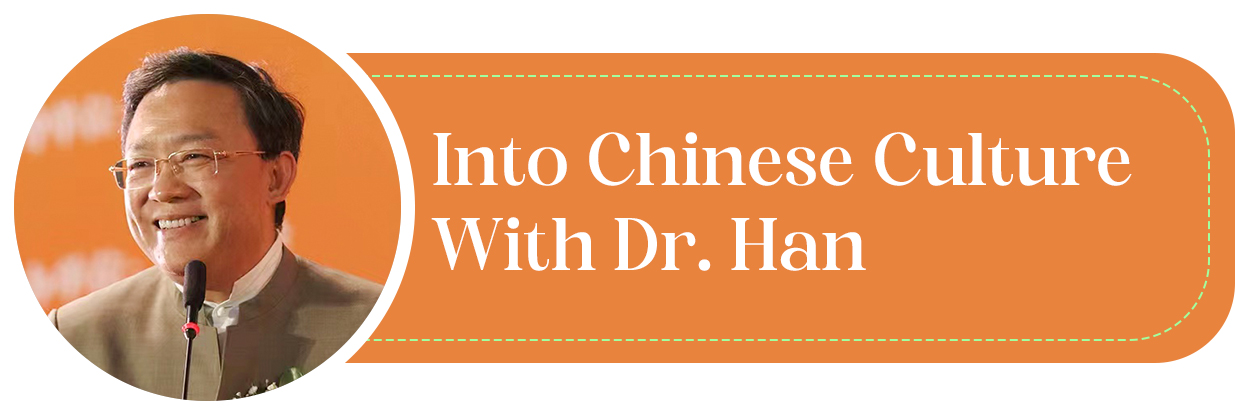The values of goodness and beauty in Chinese civilization (7)
Writer: Han Wangxi | Editor: Zhang Chanwen | From: Shenzhen Daily

7. Great integrity and righteousness
Mencius’ teachings asked people to treat others with great integrity and righteousness. But what is “great?”
Mencius said: “A man lives in the spacious dwelling, occupies the proper position, and follows the ways of the empire. When he achieves his ambitions, he shares them with the people; when he fails to do so, he practices the way alone. One cannot be corrupted by wealth or power, deviate from principle even in poverty or humble positions, and yield to the threat of force. This is what I would call a great man.” If someone can achieve this status, he will be filled with the good qualities of integrity and righteousness.
“A good quality is in the highest degree, vast and unyielding. Nourish it with integrity and place no obstacle in its path and it will fill the space between Heaven and Earth,” Mencius said.
Contemporary Japanese aesthetics expert Chūji Kasahara once gave an explanation of Mencius’ “great” in his book “The Ancient Chinese Consciousness of Beauty.” He thought “great” and “goodness” share similar meaning. However, “great” sometimes shows higher values than “goodness.” According to Mencius, to possess goodness and truth in oneself is “beautiful.” A person who shines forth with this full possession is “great.” When ancient philosopher Zhuangzi talked about the essence of beauty, he quoted legendary ancient emperor Shun’s words. He said, “Beautiful things are beautiful, but they are not great enough.”
“Great” can be paraphrased as high and sublime. People tend to perceive beauty from not only tangible and objectives substances, but also mood, behavior and personality, which are of spiritual and ethnical matters. Those who gain a grand personality would be given the reputation of a sage and a man of virtue. Those who behave nobly would be regarded as persons of ideals and integrity and benevolence.
“Great” is a word to be discussed in aesthetics, conveying ethnical implications. “Zuozhuan” (or “Zuo Tradition,” an ancient commentary on “Spring and Autumn Annuals”) recorded ancient politician and critic Ji Zha’s comment about “great” when listening to music of the “Qin.” Ji said, “This creates Chinese sounds. The Chinese sounds thus created must be great and the grand song taken to an extreme. The sounds must echo the sounds coming from the old kingdom of the Zhou Dynasty (1046-256 B.C.).”
Confucius said in the “Analects” that “‘Great’ was Yao as a ruler! Sublime was he! Heaven alone was great, and only Yao took it as his model. So vast and boundless was his virtue that people could not give it a name. Yet sublime were his achievements, brilliant his cultural vestiges.” Confucius spoke highly of Yao, praising him from both ethnical and aesthetical perspectives.
Those who reach the supreme moral standards and achieve aesthetical capabilities will be regarded as being a “sage” and “divine.”
Chinese civilization is to build the unity of honesty, kindness and beauty centered on moral virtues.
The ideal status of a person’s spiritual life is to keep honesty, kindness and beauty. Chinese civilization thinks that moral values are the ultimate values that human beings should pursue. Honesty, kindness and beauty are a unity in the moral field.
Honesty is the supreme moral discipline. Honesty is not about how you treat others, but when you do self-examination, you can firmly hear the sound from deep within that “I’m honest, and I don’t feel any guilty.”
Kindness refers to the qualities of integrity and uprightness. This spiritual realm is built upon the recognition and firm belief that the human’s innate morality is supreme goodness and beauty.
Beauty refers to the sublime beauty of the fulfilling spiritual life. When a person reaches a high spiritual level, he or she will pursue the completion of personality as a necessity of life.
Ethics is the basic essence of the spirit of Chinese philosophy. The spirit of Chinese ethics is to achieve a supreme mindset. The spirit of Chinese arts is to present the supreme realm to humans. This realm can be accessed through human’s appropriate aesthetics applied to one’s personality.